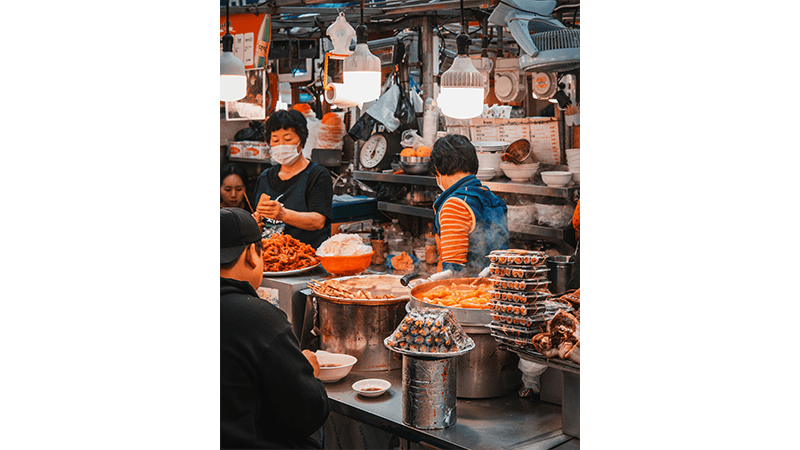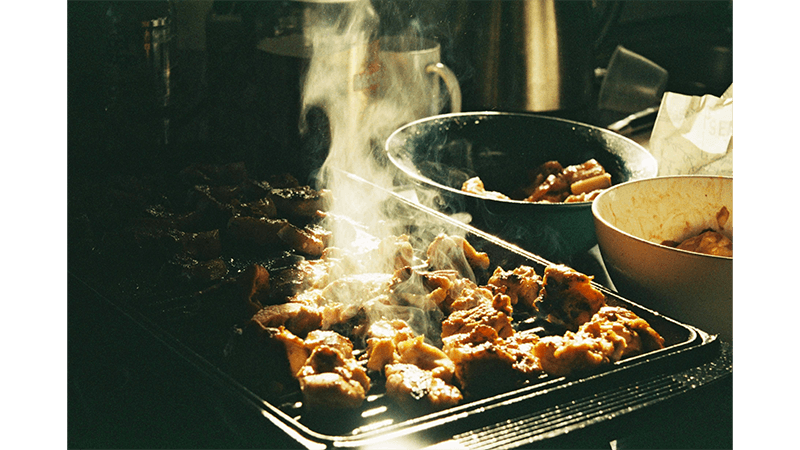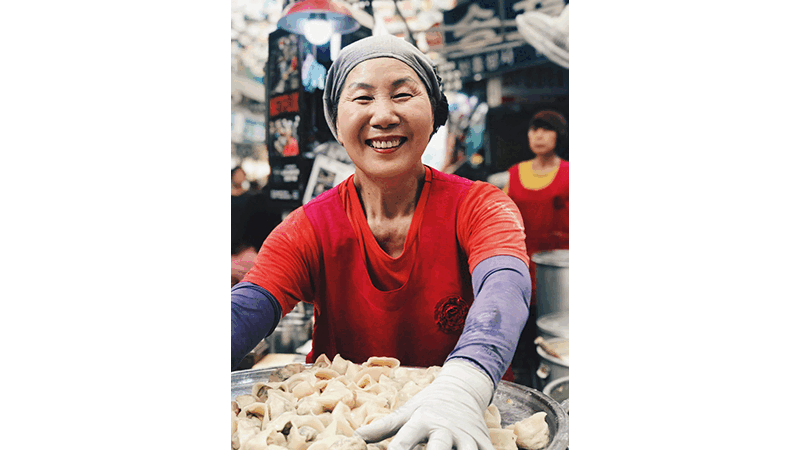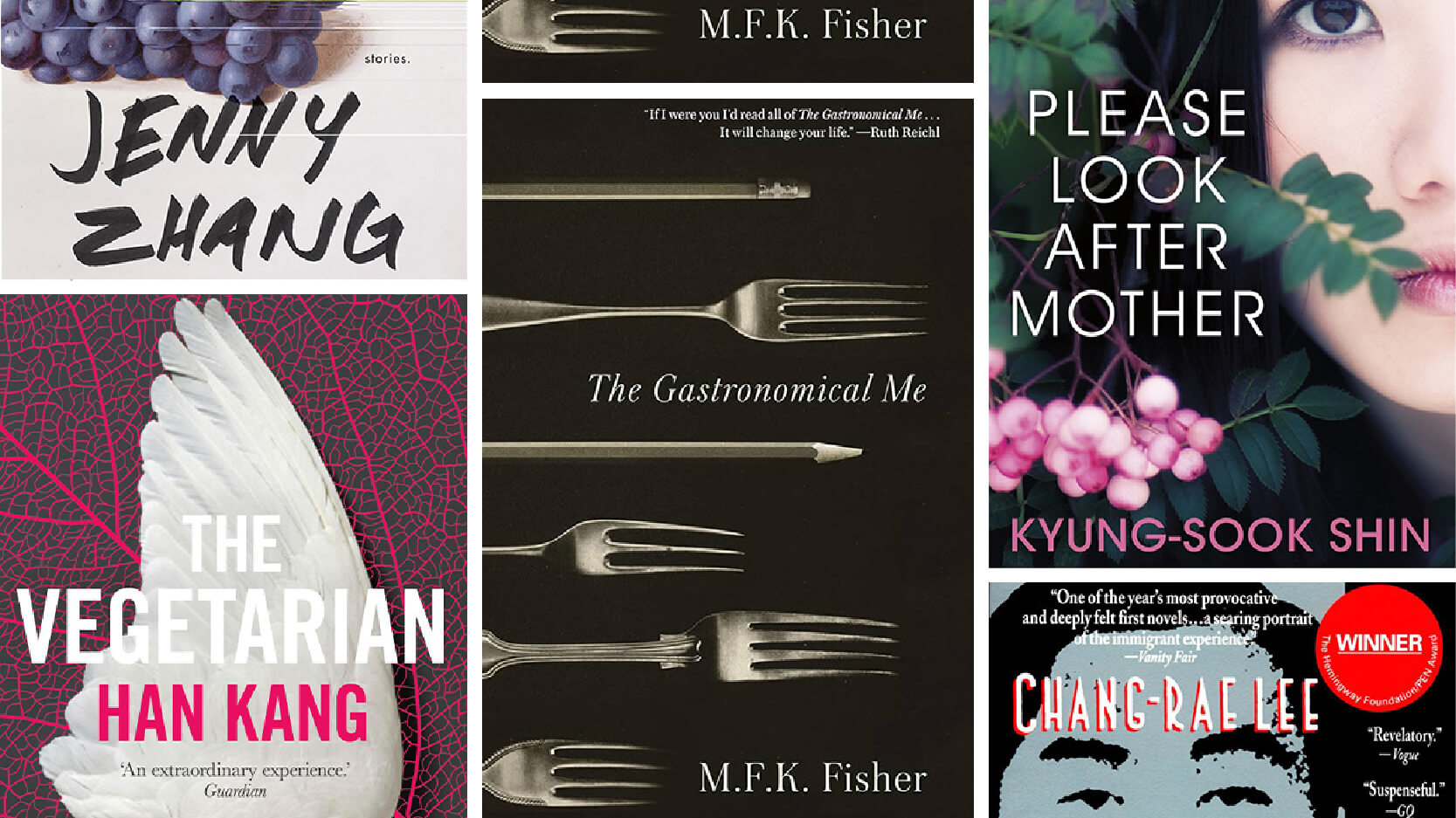The Importance Of Food In South Korean Culture
“When I go to H Mart… I’m searching for memories,” Michelle Zauner writes in Crying In H Mart. The ‘memories’ attached to food for many Koreans are of sharing meals with family, relatives and loved ones; of celebrating daily life collectively. Communal eating is at the heart of Korean food culture – as seen in the world-famous Korean BBQ style of dining. People grill meat together and eat traditional small dishes (known as banchan), and ssam (fresh lettuce and sesame leaves) with a mixed bean and red pepper paste called ssamgjang. After the grilled meat, there are bowls of rice and doenjang-jjigae (soybean paste stew).

Food has strong ties to heritage, and Koreans are proud of their family recipes, whether it’s a particular variation of kimchi, pancake or rice liquor. Recipes are passed down from generation to generation, often not via books or written instruction, but son-mat, which literally translates to ‘flavoured by hands’ – meaning measurements and timings often aren’t written down. Instead, dishes are learned by watching others (usually older female relatives) cook instinctively.
Yin and yang are an important tenet of life in Korea and are all about harmony. The idea permeates Korean flavour combinations: for example, steamed pork is paired with fermented shrimp sauce, as it’s believed that not only will the salty shrimp cut through the fatty meat, it will also aid digestion.

Korea has four very distinctive seasons, including a brutally cold winter. Edible grasses, herbs, roots, seeds and even petals that were traditionally foraged and dried to be eaten in winter are known as namul. Deodeok (a mountain herb root) and shiraegi (dried radish green) are both popular examples of namul.
In summer, naengmyeon – a dish of cold noodles in beef broth, which originated from North Korea – is popular. On hot days, you will see people lining up in front of restaurants that specialise in samgyetang – a hearty soup made from a whole chicken stuffed with sticky rice, ginseng, Korean dates, chestnut and ginkgo nuts. The dish is said to give an energy boost in the heat.
Korean food culture evokes comfort and home for many across the diaspora. Many will tell you that tteokbokki – chewy, bite-sized cylindrical rice cakes boiled in a stock with fish cakes and gochujang (a sweet-and-spicy paste) – is what they miss the most when they are out of the country.

Food is a central part of culture in Korea – bringing families together, connecting generations, and as we see in Crying In H Mart, tying Koreans across the world to their heritage. Zauner writes, “Food was how my mother expressed her love.” And as her story also tells, on their birthdays Koreans eat mieyokguk (the seaweed soup served to postpartum women) in celebration of their mothers for giving birth to them. For Koreans, food is both love and their roots.
Seoul-raised Fiona Bae runs a consultancy that bridges Korean culture with the world by promoting Korean artists, designers and architects internationally and supporting cultural institutions and brands interested in Korea. She is the author of Make Break Remix: The Rise of K-style and has written for Wallpaper and 032c




